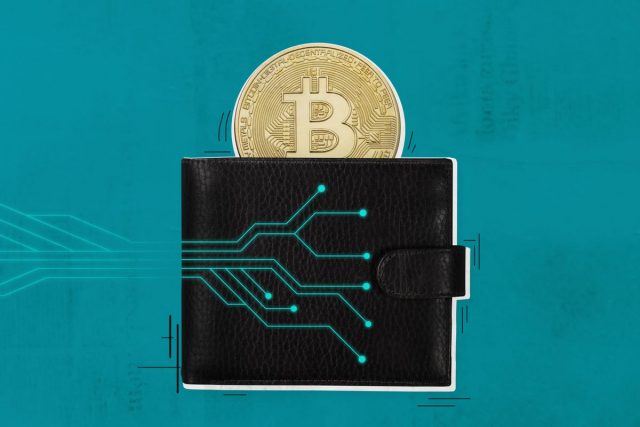In this digital era, the allure of virtual treasures is skyrocketing, making safeguarding these assets from cyber outlaws a necessity. It’s not like squirreling away grandpa’s antique coins in a secret compartment of your old wooden dresser; we’re talking about shielding digital assets that reside in the realm of bytes and bits.
The all-too-familiar software wallets might be the go-to choice for most crypto enthusiasts, but they’re not invincible against cyber-attacks. Enter the super-safe hero of the story – hardware wallets. These devices are the digital equivalent of Fort Knox for your precious cryptocurrencies.
Hardware Wallets
So, what exactly is a hardware wallet? It’s a tangible device, looking a lot like your everyday USB stick, which holds the key to your cryptocurrency vault. Unlike its software sibling, this wallet stays offline, safely distancing your cryptocurrencies from any potential internet predators.
Hardware wallets are like miniature vaults, safeguarding your private keys— the cryptocurrency world’s version of a password. Whenever you wish to check your balance or carry out a transaction, it’s as simple as plugging the device into your computer or smartphone, inputting your PIN, and voila! Your digital wallet is ready for business.
How Hardware Wallets Operate
Let’s delve a bit deeper into the operations of a hardware wallet. It starts with creating a unique PIN code and a recovery phrase during the setup. This recovery phrase is your safety net, a string of words capable of retrieving your wallet if it’s lost or pilfered. Once set up, the wallet will have its unique public key – your open-for-all postal address to receive cryptocurrencies.
Executing a transaction with a hardware wallet requires the device to be connected to your computer or smartphone and unlocked with the PIN. After inputting the recipient’s public key and the transaction amount, the device confirms and signs the transaction, essentially creating a unique digital signature. This signature acts as the final confirmation on the blockchain.
Now, why all this fuss about private keys? These unique alphanumeric strings act as your virtual signature, the definitive proof of your digital assets ownership. If you misplace them, it’s game over – no private keys, no access to your digital fortunes.
Hardware wallets are the guardians of these private keys, securing them from the grubby hands of cyber swindlers. They generate and house your private keys offline, ensuring your digital wealth stays secure. And remember, sharing isn’t always caring, especially when it comes to private keys. Handing them over to others is like giving them a free pass to your digital riches.
Top Hardware Wallets
In the land down under, one hardware wallet stands out from the crowd. Ledger, with its diverse models like the cost-effective Nano S or the more feature-rich Nano X, suits various user needs.
Back in 2016, Ledger rolled out what some consider the father of hardware wallets, the Ledger Nano S. At a price of $59.00, the wallet isn’t just for buying crypto but for safeguarding and managing your digital treasures too. With a certified secure chip, it can juggle between three to 20 applications.
Fast-forward to 2019, Ledger unveiled its next-gen wallet, the Ledger Nano X. A bit pricier at $119.00, this version packs all the features of its predecessor but ups the ante by accommodating a whopping 100 applications. The cherry on top? A Bluetooth connection that lets you oversee your crypto assets from any corner of the globe.
No matter which Ledger wallet you pick, you’re in for a treat. Both models cater to 27 coins and over 1,500 tokens, covering big crypto players and the underdogs alike. If you are considering purchasing the company’s hardware wallet, consider applying the Ledger promo code at checkout to save some coins.
Hardware Wallet VS Software Wallet
So, do you need a hardware wallet to dip your toes in the crypto world? Well, not necessarily. You could opt for software wallets or crypto exchange wallets. But remember, unlike hardware wallets, they leave your private keys exposed to potential online threats.
Now, let’s put the hardware and software wallets head-to-head. Hardware wallets, being offline, are nearly impervious to cyber-attacks. They come loaded with security features and support a wide range of cryptocurrencies. On the flip side, they can be expensive and slightly less convenient to use.
Software wallets, being internet-based, offer more flexibility and convenience. However, this comes at the cost of reduced security, making them susceptible to hacking and malware attacks.
The advantages of using a hardware wallet are aplenty. The foremost is the security it offers, keeping your private keys away from the murky waters of the internet. They are compatible with multiple cryptocurrencies, making them a versatile choice for all your digital assets.
Moreover, hardware wallets provide recovery options, so even if your device goes missing or gets damaged, you can retrieve your digital assets using your unique recovery key. As long as you have the recovery key, your assets can be retrieved using another hardware device.
Conclusions
In the fast-paced world of cryptocurrencies, a hardware wallet is like your trusty bodyguard, providing an extra layer of armor to protect your digital assets. Choose wisely, invest safely, and let your digital wealth grow securely.









